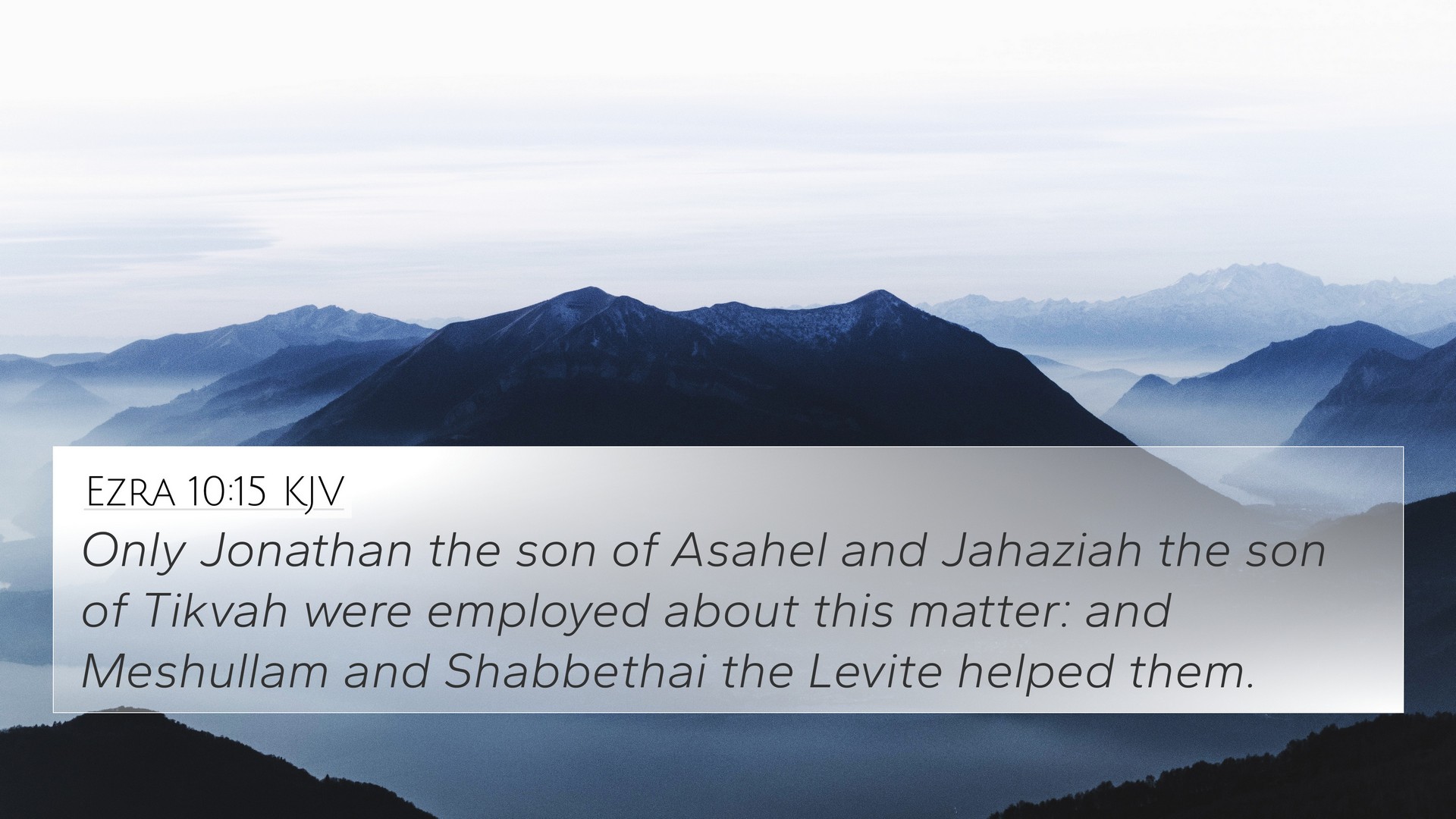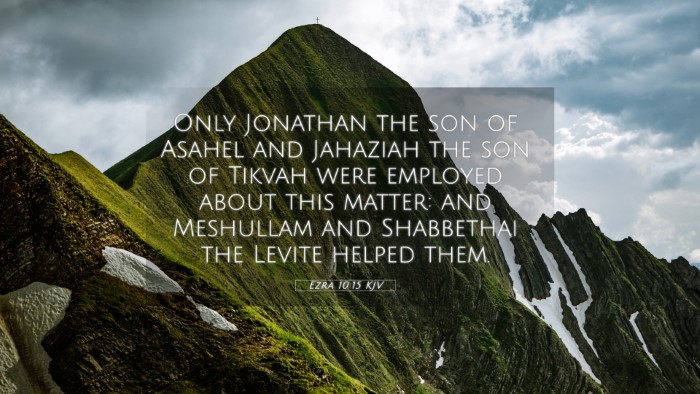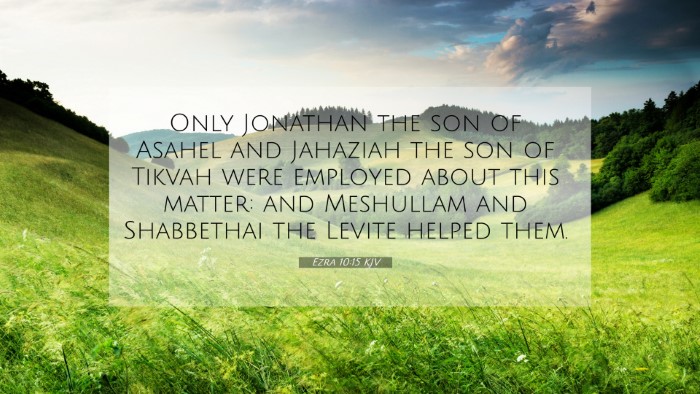Understanding Ezra 10:15
Ezra 10:15 reads: "Only Jonathan the son of Asahel and Jahzeiah the son of Tikvah were employed about this matter: and Meshullam and Shabbethai the Levite helped them." This verse highlights the critical role of individuals who were tasked with addressing a significant issue within the community of Israel, particularly regarding intermarriages with foreign women, which was contrary to the covenant of God. Below is a detailed analysis of this scripture, synthesizing insights from various public domain commentaries.
Context and Background
This verse appears at the conclusion of Ezra's effort to re-establish the covenant community after the exiles returned from Babylon. It follows the confession of sin and a solemn commitment to separate from foreign influences. The issue being addressed was serious because it related to the integrity of the worship and lifestyle of Israel.
Key Players in Ezra 10:15:
- Jonathan the son of Asahel: A main figure appointed to handle the situation.
- Jahzeiah the son of Tikvah: Another key individual in overseeing the matter.
- Meshullam and Shabbethai the Levite: Supporters who assisted in managing this important task.
Insights from Commentaries
This scripture has been interpreted variously by different scholars:
- Matthew Henry: Emphasizes the importance of having faithful leaders to handle community issues. Henry notes that the involvement of the Levites highlights the need for spiritual leaders in matters that concern the community's holiness and dedication to God's covenant.
- Albert Barnes: Points out that the selection of these men suggests a careful and deliberate approach to dealing with the issue. He reflects on the significance of accountability in leadership and emphasizes that this was a serious matter that needed committed individuals to address it.
- Adam Clarke: Comments on the potential challenges faced by these men. Clarke sees this as an example of how God's people are often called to confront hard truths about their practices and the importance of community integrity.
Bible Verse Cross-References
Ezra 10:15 has several significant cross-references that enhance our understanding:
- Deuteronomy 7:3-4 - God's command against intermarriage with the nations.
- Nehemiah 13:23-27 - Nehemiah addresses similar issues regarding foreign wives.
- Malachi 2:11-12 - A warning against unfaithfulness in marriage.
- Ezra 9:1-2 - The initial problem of intermarriage leading to spiritual corruption.
- 2 Corinthians 6:14 - The New Testament teaching on being unequally yoked with unbelievers.
- 1 Peter 2:9 - The call to be a holy nation, echoing the sentiments of Ezra.
- Psalm 106:34-36 - A historical reflection on how intermarriages led to Israel's transgressions.
Thematic Connections
The central theme of Ezra 10:15 ties into the need for purity and faithfulness among God’s people. The placement of these individuals speaks to the following themes:
- Holiness: A call for God's people to maintain purity in their community.
- Leadership: Recognizing the importance of having trustworthy figures in times of trouble.
- Accountability: The necessity of addressing wrongs within the community.
Inter-Biblical Dialogue
This verse facilitates a rich dialogue between the Old and New Testaments. The issues faced by Ezra resonate with New Testament teachings regarding relationships and moral integrity, highlighting a consistent Biblical narrative regarding covenantal faithfulness.
Conclusion
Ezra 10:15 is more than a historical note; it serves as a profound reminder of the importance of community integrity, the role of leadership, and the seriousness of commitments made to God. By engaging with cross-references and thematic studies, believers can deepen their understanding of how God calls His people to live in holiness and faithfulness. This verse encapsulates vital principles that are applicable to believers today, revealing the timeless nature of God's expectations for His people.






